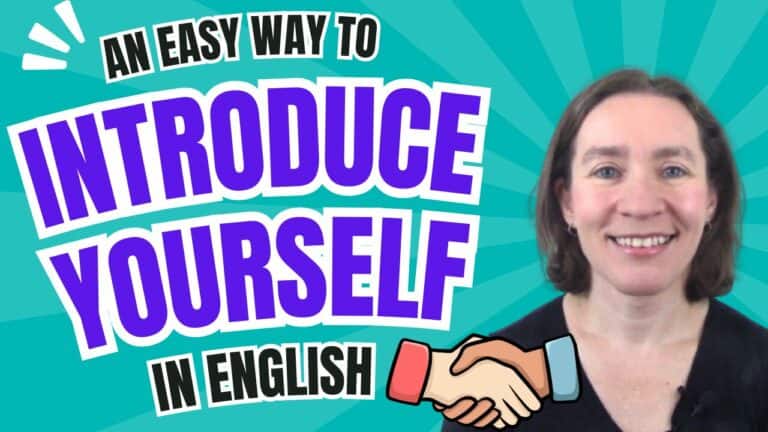
When learning another language, it’s easy to make the mistake of being a little bit rude, since you might not be aware of the phrases that are considered “polite” or “impolite” to native speakers.
I’m sure you already know to say “Please”, “Thank you,” and “Excuse me” – but today I’ll teach you 15 more ways to make your English sound more polite!
Polite English is especially important if you’re learning English for your job or career. You want to have good relationships with coworkers, make a positive impression on clients and customers, and sound pleasant during interviews.
If you’d like to learn English phrases that are perfect for professional situations, check out my Business English Course!
OK, let’s look at how to transform 15 sentences into more polite-sounding ones.
Don’t say: I want a hamburger.
Say: I’d like a hamburger.
Or: I’ll have a hamburger, please.
“I want” sounds like a demand, as if you are commanding the other person to fulfill your desires. “I’d like” is a more polite and diplomatic phrase. When ordering food and drinks, we often use “I’ll have…”
Don’t say: Send me the report.
Say: Could you send me the report?
To maintain good relationships with coworkers, it’s best not to use imperatives (starting a sentence directly with a verb like “Reply to my e-mail,” “Go to the bank,” “Finish this project.”)
Instead, make requests with the phrases, Could you…? and Could you please…?
Don’t say: Go away. / Leave me alone.
Say: Could you give me a minute?
Or: Sorry – I’m a bit busy right now.
If a colleague approaches you at a bad time and you want the person to leave, use the phrases in green. “Could you give me a minute?” is for when you just need a few moments to finish up what you’re working on, and then you’ll talk with the colleague.
You can use the other phrase, “Sorry – I’m a bit busy right now” when you’re in the middle of work that can’t be interrupted. You can follow up with “Can we talk a little later?” and agree on a time when you’re both available.
Don’t say: Tell me when you’re available.
Say: Let me know when you’re available.
“Let me know” is a nicer and more indirect way to say “tell me.” It’s a casual way to ask for some information. Alternatively, you could simply ask the question, “When are you available?”
Don’t say: You’re wrong.
Say: I think you might be mistaken.
Or: Actually… (say the correct information)
Or: I’m afraid I disagree.
It’s best to use a more indirect phrase when pointing out someone’s mistake. “I think you might be mistaken” is a more humble phrase, allowing for the possibility that you might be wrong about the other person’s error, too!
The word “Actually…” is used to correct an error and give the correct information, without specifically saying that the other person was wrong. Finally, if it’s a matter of opinion, you can use the last phrase, “I’m afraid I disagree.”
Don’t say: That’s a bad idea.
Say: I’m not so sure that’s a good idea.
Or: I have a few concerns.
Instead of using strong and direct words like “bad,” it’s more polite to say “I’m not so sure that’s a good idea.” Another option is to state your specific objections by pointing them out as “concerns.”
Don’t say: Your work isn’t good.
Say: I’m not quite satisfied with this work.
Or: To be honest, this needs some improvement.
One of the hardest things to do is telling somebody that their work doesn’t meet the standards or expectations. You can make it easier for the other person to accept by using the phrases in green. The phrase “to be honest…” is used when you are going to state an opinion that other people might not like very much.
Don’t say: I don’t like the colors in this design.
Say: I’m not too fond of the colors in this design.
Or: I’d prefer to use different colors in this design.
When reviewing work, avoid statements like “I don’t like…” Instead, you can use a more indirect form like “I’m not too fond of…” or “I’m not a fan of…” Another option is to state what you want to see instead: “I’d prefer…” or “I’d rather…”
Now you know a number of ways to express things more politely in English! These phrases are useful in lots of different situations. And you can join my Business English Course to learn more specifically what to say in interviews, meetings, negotiations, and conversations with customers and co-workers.
Learn more:











